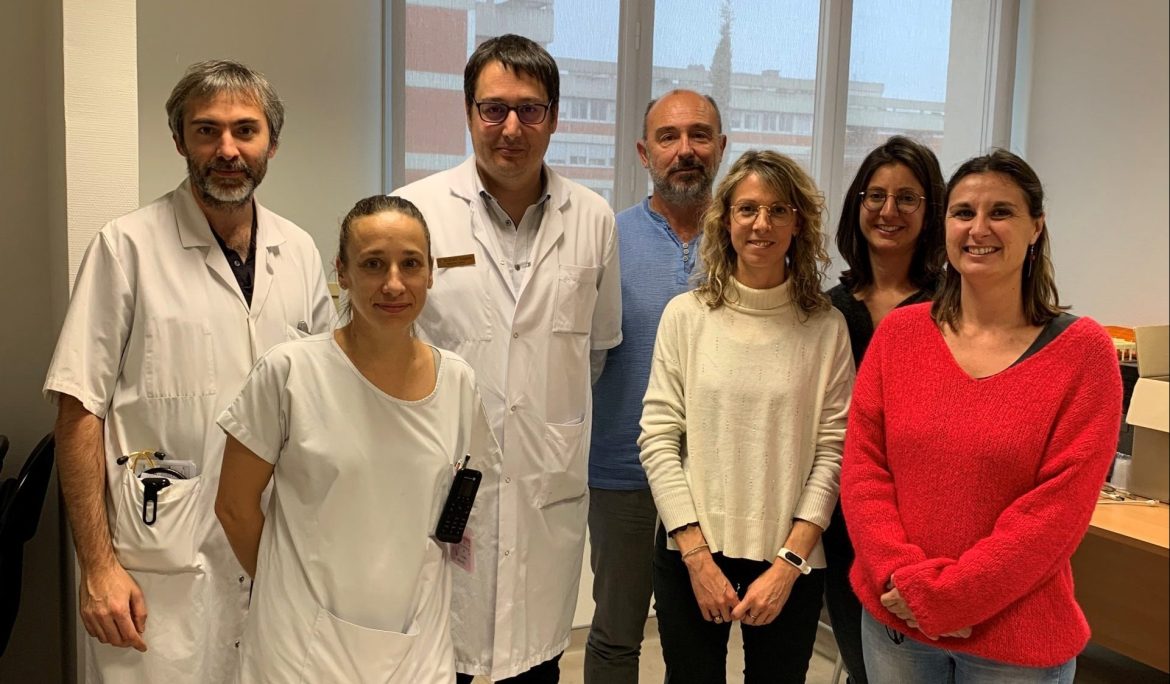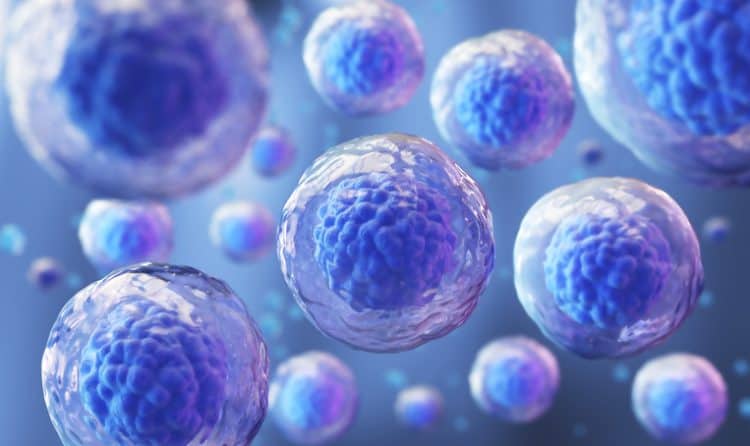EU regulatory approval to administer Adipose-derived mesenchymal Stem Cells (ASCs) in patients with ischemic digital ulcers marks key milestone for partners
Toulouse, France, November 16, 2023 – Cell-Easy, a French Contract Development and Manufacturing Organization (CDMO) focused on advanced cell therapies, and the Toulouse University Hospital, today announce that they have obtained IMPD (Investigational Medicinal Product Dossier) approval for a first-in-human clinical trial. This trial will use an allogeneic treatment, developed from an autologous process, for patients with ischemic digital ulcers in systemic sclerosis. The CDMO developed the entire manufacturing process from an initially autologous one where the cell donor was the patient himself.
The innovative allogeneic approach uses cells from a single donor to produce therapeutic doses for thousands of patients. This is cost-efficient, therefore it makes the product more accessible for patients.
Cell-Easy has conceived and designed a process for the large-scale manufacturing of ASCs in compliance with the GMP (Good Manufacturing Practice) standards required by regulatory agencies. These ASCs will be used in the A-DUSE clinical trial. Prof. Gregory Pugnet, from the Internal Medicine and Clinical Immunology department, Rangueil Hospital, Toulouse, (France) is the main investigator of the trial, which is sponsored by Toulouse University Hospital.
Gaining ANSM/EMA’s approval for the A-DUSE clinical trial is a demonstration of the Cell-Easy team’s ability to carry out a cell therapy development program from end to end. Some highlights from the new large-scale manufacturing process of therapeutic doses of allogeneic ASCs:
-
-
- >5,000 doses per tissue donation
- >4.109 cells per batch
- x20 cost reduction
- 26 parameters analyzed per batch
-
The Toulouse University Hospital, through its clinical center of investigation in biotherapy (CIC-BT) structure, stands as a pioneering cell therapy player in Europe. It has 20 years’ experience in the field of cell therapy based clinical research. In a bid to kickstart the A-DUSE clinical trial safely and efficiently, Prof. G. Pugnet was looking for a robust industrial partner capable of providing high numbers of clinical grade ASC therapeutic doses. The scientific, technical and regulatory expertise of the French CDMO, and its ability to offer an end-to-end service spanning from patient sample procurement through to IMPD writing, convinced the Toulouse study center.
“This project represents another remarkable milestone for Cell-Easy, demonstrating our ability to successfully navigate the entire life cycle of Advanced Therapy Medicinal Products (ATMP) development. Our collaborative work with physicians, supply chain partners, regulators and policymakers has enabled us to effectively address the intricacies of these therapies and establish rigorous quality standards,” said Guillaume Costecalde, president at Cell-Easy.
Beyond conventional GMP manufacturing of ASCs, the A-DUSE clinical trial required the selected partner to provide unfailing support in terms of regulatory and scientific matters, as well as medico-economic understanding of the disease. Close collaboration between Cell-Easy, CIC-BT and Prof. G. Pugnet was instrumental in achieving this objective.
In less than 20 months, Cell-Easy developed a new production process in ASC along with all the associated analytical tests for robust batch qualification.
Within the framework of this partnership, the resources made available by the CDMO have resulted in:
-
-
- Establishment of partnerships with local healthcare centers capable of selecting donors based on medical-biological criteria, of supplying human adipose tissue and of qualifying donations at GMP level, as required by EU/US regulatory agencies
- Conducting toxicity and tumorogenicity studies in mice, and
- Co-authoring the IMPD for submission to the local French agency, the ANSM
-
Injection of allogeneic ASC, a promising opportunity for healing digital ulcers
Systemic sclerosis is an orphan disease characterized by the development of microangiopathies and progressive fibrosis. Digital Ulcers (DUs) are common in the course of the disease and are an expression of its severity. Not only do DUs cause intense pain and hand disability, but more critically they can lead to infections that can result in gangrene and eventual amputation. With optimal standard of care only 60% of DUs are healed after three months and 46.2% experience recurrence during this period, with 11.2% having a chronic course. To date, no medication has demonstrated a positive effect on the healing of refractory DUs. In this clinical context with no therapeutic alternative, the partnership between Toulouse University Hospital, represented by Prof. G. Pugnet, the CIC-BT, and Cell-Easy, through the A-DUSE Clinical Trial (digital injection of allogeneic ASC), represents a promising opportunity for many patients in the healing of refractory ischemic DUs.
Since 2021, French players in biotherapy have been working hard to convert a promising MSC-based therapy concept into reality for patients living with ischemic digital ulcers due to systemic sclerosis.
About Grégory Pugnet, coordinating investigator
Grégory Pugnet, M.D., PhD., coordinating investigator of the multicentric randomized control clinical trial (ADUSE, NCT04356755, EU CT Number 2023-508432-53-00), is among the few specialists in systemic autoimmune disease; in which he is leading important clinical research activity. He worked for 18 months at the French Reference Center for Systemic Sclerosis in Cochin Hospital (Paris, France). Pugnet is an active member of the GFRS (Groupe Francophone de Recherche sur la Sclérodermie), and a member of the scientific committee of the French Reference Center for Cell Therapy in Autoimmune Diseases (MATHEC network), with the FAI2R network, labeled by the French Ministry of Health in 2017. Grégory also actively participates in CIC-BT, coordinated by Louis Buscail, and has secured funding for three ASC-based cell therapy projects in scleroderma (A-DUSE, A-MUSE) and neuroinflammatory muscular diseases (A-NEMIS) in collaboration with CIC-BT and Cell-Easy.
About CIC-BT
The Clinical Center of Investigation in BioTherapy (CIC-BT 1436) is an academic organization under the supervision of Toulouse University Hospital (CHUT)/INSERM/University. It was established at the end of 2005 to support researchers and companies developing cell, gene and molecular therapy ATMPs, from the preclinical phases through to the coordination and conduct of phase 1-3 clinical trials. Its structure draws on the expertise of CHUT’s research and innovation department for regulatory aspects when CHUT is the study sponsor.
Coordinated by Prof. Louis Buscail, CIC-BT has been responsible for numerous projects, funded by a total of six million euros ($6.4M) (CHU promoter), including five national clinical research hospital programs – Programme Hospitalier de Recherche Clinique (PHRC) (2010, 2013, 2014, 2017 and 2022), three inter-regional PHRCs (2013, 2019 and 2022), one Horizon 2020 program, one SudOE program and two associations. CIC-BT also carries out extensive research in cardiovascular and digestive pathologies, in geriatrics and pediatrics, as well as translational research in collaboration with teams involved in regenerative medicine (RESTORE), neurodegenerative diseases (INFINITY), cardiovascular diseases (I2MC) and oncology (CRCT).
www.chu-toulouse.fr
About Cell-Easy
Cell-Easy is a rapidly growing French Contract Development and Manufacturing Organization (CDMO) with a dedicated focus on advanced cell therapies. Established in 2017, Cell-Easy’s commitment extends beyond development and manufacturing; it also places a strong emphasis on regulatory and CMC aspects.
Cell-Easy offers a comprehensive range of services, from process development and process scale-up through to cGMP manufacturing of next-generation advanced cell therapies. This also includes the development of analytical tests to qualify cell therapies such as ASCs, CAR-T or CAR-NK cells, iPSCs and macrophages. Cell-Easy has demonstrated its ability to support biotech/pharmaceutical companies in advancing their programs up until phase 2, and to partner with top 30 international pharmaceutical multinationals. Thanks to its flexibility and tailored CDMO solutions, Cell-Easy facilitates patient access to these innovative therapies.


